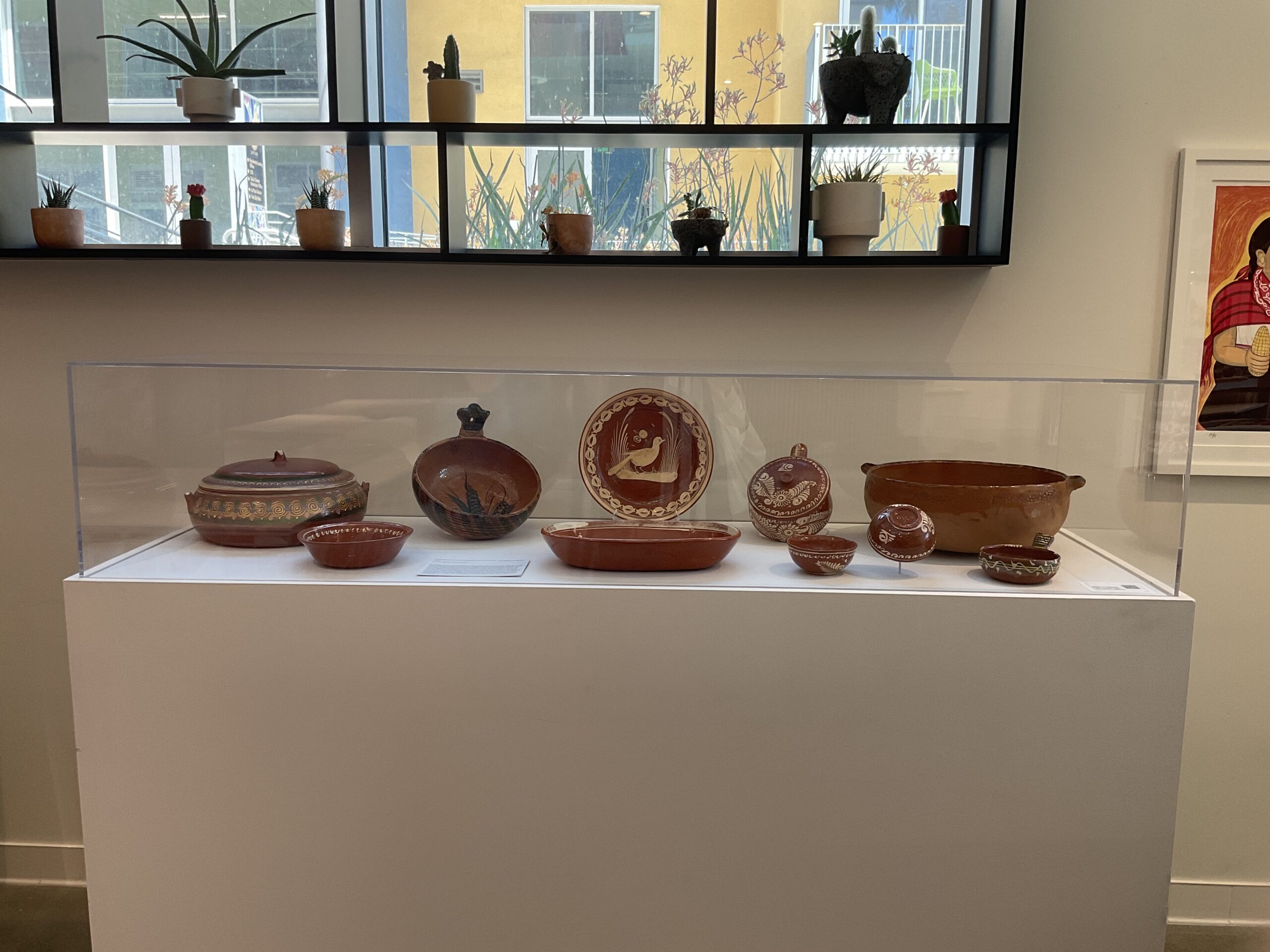There are thousands of Mexican restaurants all over Los Angeles, but there is only one Mexican food “museum.”
In February, LA Plaza Cocina, an extension of the LA Plaza de Cultura y Artes, became the first museum dedicated to Mexican cuisine in the United States. The all-women staff team of LA Plaza Cocina is redefining who and what gets included in museum spaces. The team’s goal is to celebrate Mexican regional cuisine, its indigenous and African influences, and the Los Angeles community members that specialize in regional Mexican dishes.
I recently attended a Platica y Prueba event with Oaxacan chef Alfonso “Poncho” Martinez, owner of Poncho’s Tlayudas. Chef Martinez greeted us in his native language of Zapotec and then commenced his class in Spanish. His sister Estela joined him on the stage.
The two combined ingredients like tomatoes, masa amarilla, chile guajillo, toasted chile de árbol, and hoja santa to make a mole amarillo. As he blended, chopped, and mixed these ingredients, Chef Martinez engaged the audience on questions about the ingredients, how he learned to cook, and his first work experiences as a dishwasher after migrating to Los Angeles.
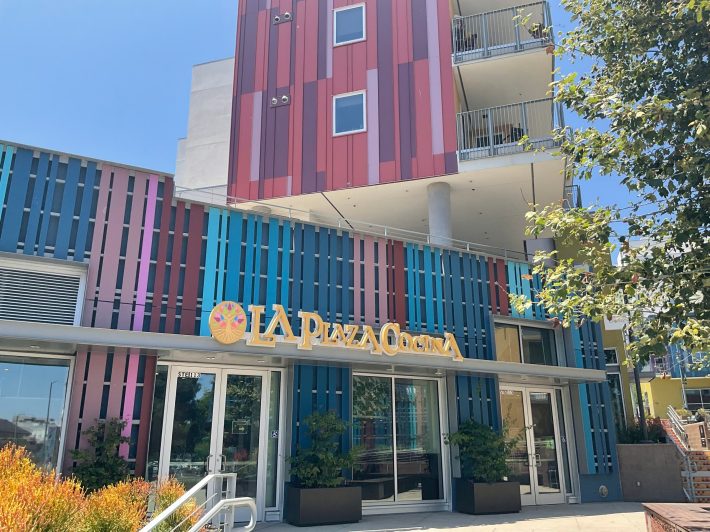
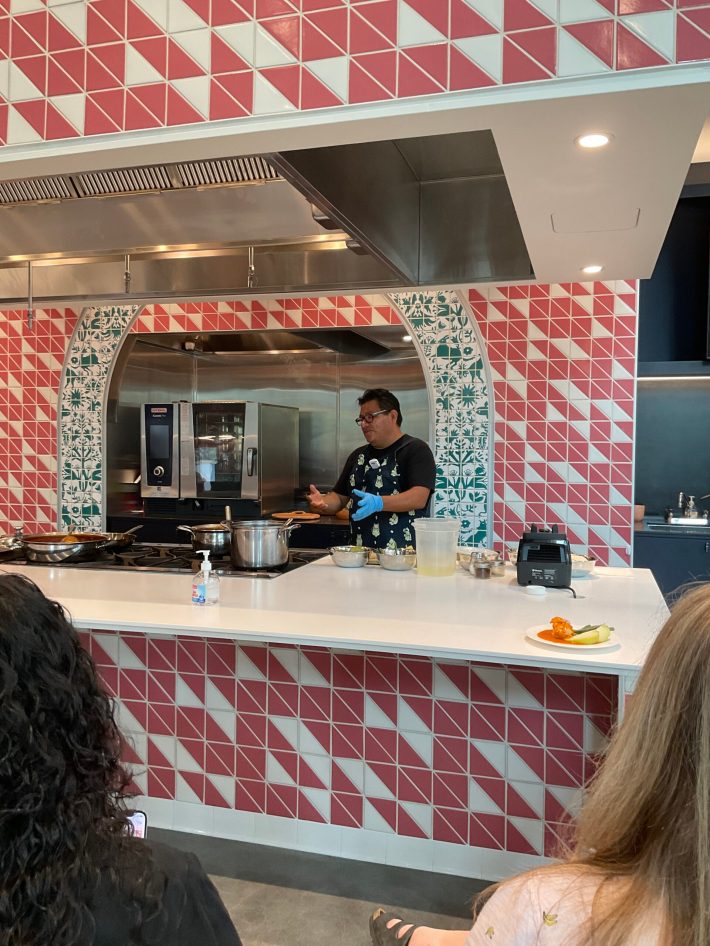
The people who drove in from all around town to learn more about Indigenous food wisdom included a Mexican father and his adult son who bond through visiting restaurants and taking cooking classes together, a Chinese American young woman and her Salvadoran friend who were interested in learning more about mole, and a Latina immigration attorney who volunteers for the LA Plaza on her time off of work. While we had just met, it felt special to come together as a group to try mole amarillo con pollo with a enfrijolada and to share our reactions with each other.
At LA Plaza Cocina, you can check out its current two exhibits “Abuelita’s Kitchen: Mexican Food Stories” and “Cazuelas y un recetario: Family Hierlooms.” Walking around the gallery, you’ll see things like an apron with roses stitched on the front, beautifully decorated pots and pans, molcajetes, a hand written cooking book, and plantitas provided by Boyle Heights’ own Latinx with Plants.
My first visit to LA Plaza Cocina felt personal. There were items on display similar to those that I grew up with in my family’s kitchen. I walked slowly as I admired the photos of abuelitas with their families and viewed their cookware. Some of these items were passed on to them by their own mothers. There were layers of memories, relationships, celebratory occasions, and everyday meals within the items of the families represented in the gallery that flooded my senses. I wanted to engage more.
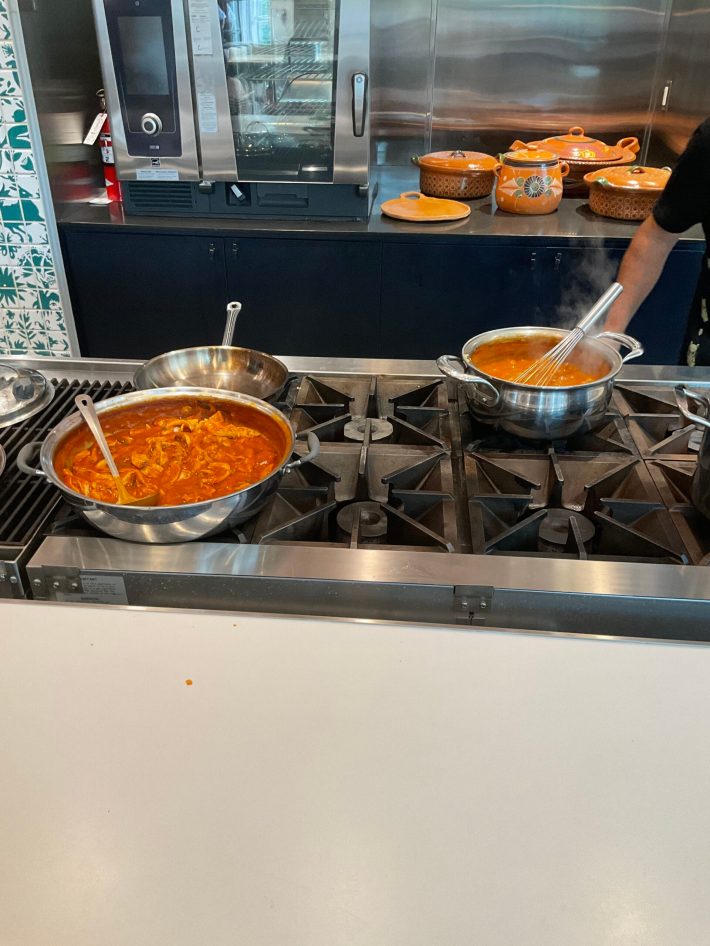
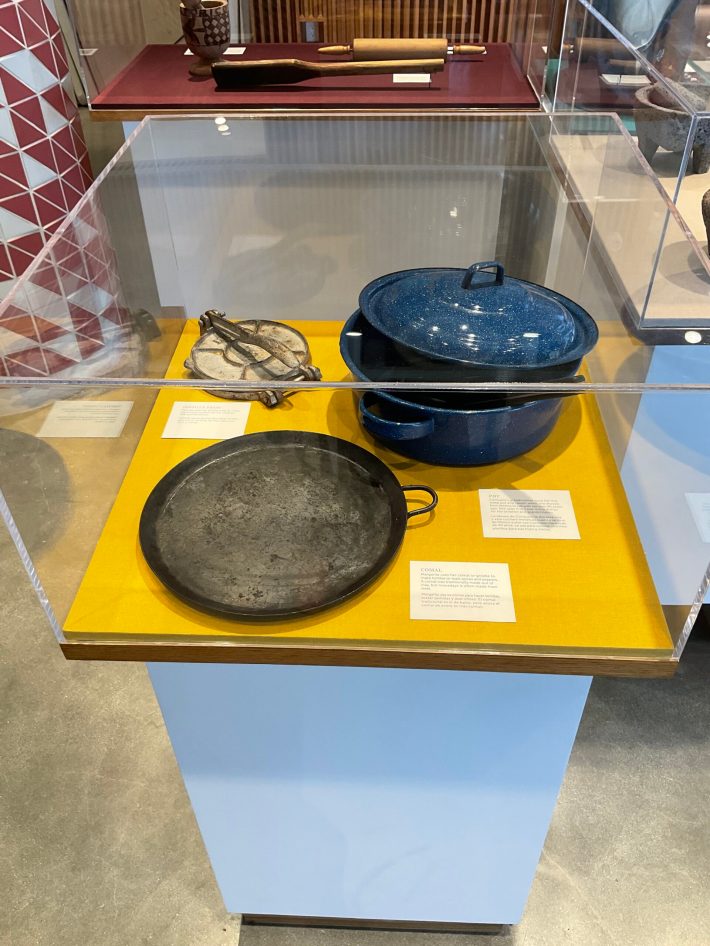
Luckily for visitors, LA Plaza Cocina offers a culinary program that includes cooking classes and Platicas y Prueba with local chefs in Los Angeles. At the Platicas y Pruebas events, visitors engage in conversation with a chef and try one of their dishes.
LA Plaza Cocina’s programming serves as a way for those interested in learning more about Mexican regional cuisines and histories–including their own. For example, I met Felix at the end of the event as we were both packing up some mole amarillo to take home. Felix was born in Oaxaca and migrated to Los Angeles when he was 10. He shared with me that he wanted to come to that day’s event because he wanted to learn how to make mole amarillo. He noted that his mom “cooked what was available” because of budget constraints. For him, watching Chef Martinez and learning about a dish was his way of learning more about Oaxacan cuisine. He noted, “This is a lost art.”
LA Plaza Cocina is a place to learn about the people, places, and things that inform Mexican cuisine and culture. For those of us who identify as Mexican or Mexican American, it is a place of visibility and acknowledgment of the roles that indigenous and Afro-Mexicans have played in Mexican cuisine and culture.
For all, LA Plaza Cocina is a meeting place for people to come together for food, discussion, and joy. Most importantly, LA Plaza Cocina reminds us to include food and regional foodways in our documentation of family and community histories for future generations.
LA Plaza Cocina (555 N Spring St. Los Angeles, CA 90012) and LA Plaza de Cultura y Artes (501 N Main St. Los Angeles, CA 90012) are open Wednesday to Sunday from noon to 5 PM.
